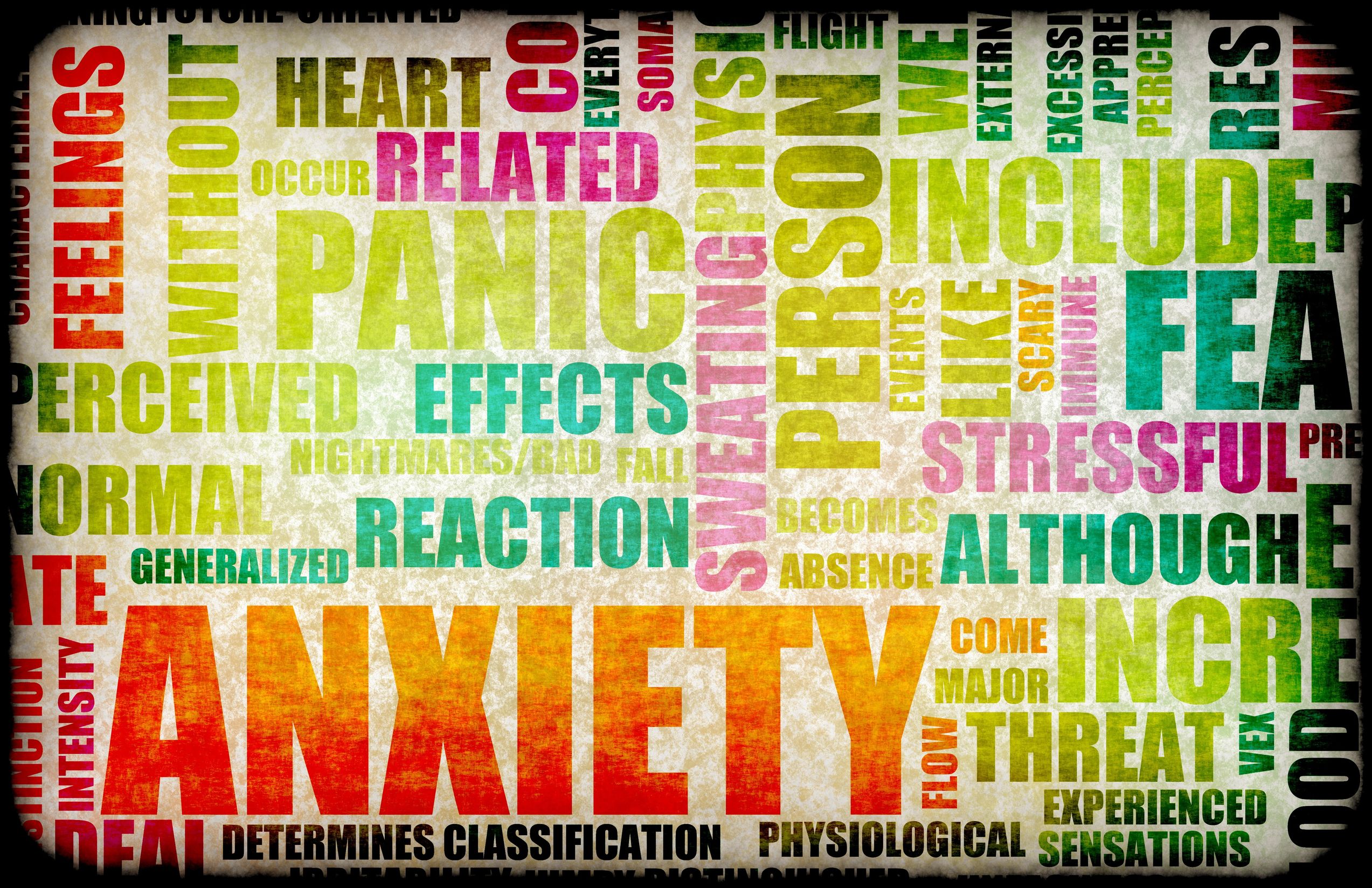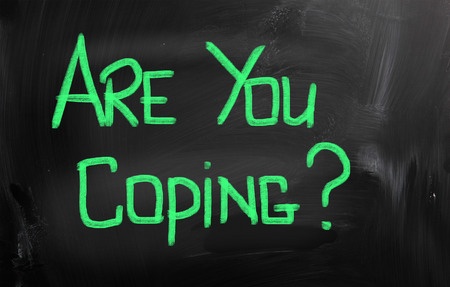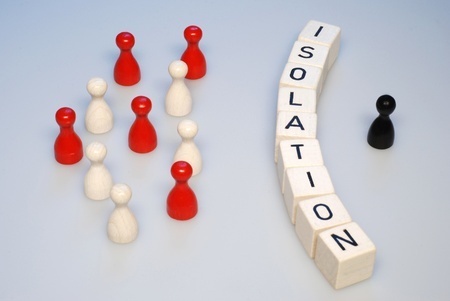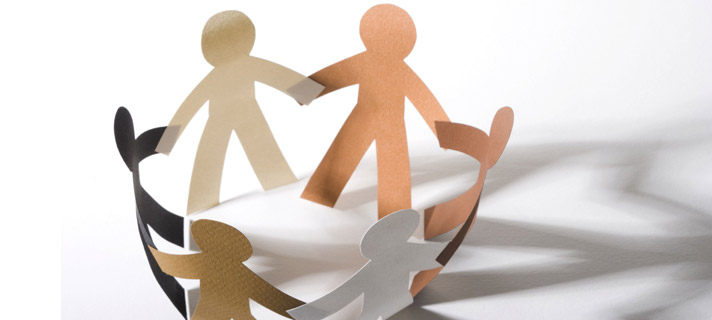 I remember quite vividly the moment when stress began to affect me acutely. It was a week or so before I was due to hand in my PhD thesis and I was sat in front of a new cohort of Level 1 undergraduate students waiting to be introduced. I’d always feel a modicum of tension before such occasions but today was different: my nervousness was so palpable it felt almost beyond control. I had heat rash running up my arms and was struggling to breathe. I seemed to have lost my depth perception, as though in the worse stages of drunkenness. This created a rising level of panic at merely having to stand up and introduce myself. I feared I might just collapse while trying to get out of my chair. When my name was called I managed to get up and say something. I’ve no idea what … some garbled inanity that I thought must have betrayed to everyone what a mess I’d suddenly become. After rambling for what seemed like 15 minutes (but was probably around 30 seconds) I returned to my chair in a daze. After the meeting I was completely drained of energy. Instead of going back to work on my PhD I just got on the bus and went home.
I remember quite vividly the moment when stress began to affect me acutely. It was a week or so before I was due to hand in my PhD thesis and I was sat in front of a new cohort of Level 1 undergraduate students waiting to be introduced. I’d always feel a modicum of tension before such occasions but today was different: my nervousness was so palpable it felt almost beyond control. I had heat rash running up my arms and was struggling to breathe. I seemed to have lost my depth perception, as though in the worse stages of drunkenness. This created a rising level of panic at merely having to stand up and introduce myself. I feared I might just collapse while trying to get out of my chair. When my name was called I managed to get up and say something. I’ve no idea what … some garbled inanity that I thought must have betrayed to everyone what a mess I’d suddenly become. After rambling for what seemed like 15 minutes (but was probably around 30 seconds) I returned to my chair in a daze. After the meeting I was completely drained of energy. Instead of going back to work on my PhD I just got on the bus and went home.
I realise that what is written above might seem overly dramatic, but this was the first experience I’d had of anxiety manifesting itself so physically. I have always been one of those people who thought stress was an off-hand word for someone who had a lot on, the cure being to knuckle down, stop moaning and get on with things. But suddenly, and perhaps for the first time in my life, I actually felt vulnerable. As though I had lost some fundamental control over my physical capabilities for psychological reasons.
 I had been at the institution for five years, working part-time while simultaneously researching my PhD. As with all fractional staff, the teaching/research relationship was often difficult to manage, and I was desperate to finish before the next academic year began. I had quit my evening job at a restaurant and moved back home in order to save money and dedicate the entire year to completing my PhD before the start of term. I had therefore worked throughout the summer with only sporadic days off here and there and, though I was exhausted and felt pressured throughout that time, I had felt generally on top of things. Yet as September progressed and a heavy teaching load, for which I felt unprepared, loomed large, writing became slower, and pre-teaching commitments began to increase the anxiety.
I had been at the institution for five years, working part-time while simultaneously researching my PhD. As with all fractional staff, the teaching/research relationship was often difficult to manage, and I was desperate to finish before the next academic year began. I had quit my evening job at a restaurant and moved back home in order to save money and dedicate the entire year to completing my PhD before the start of term. I had therefore worked throughout the summer with only sporadic days off here and there and, though I was exhausted and felt pressured throughout that time, I had felt generally on top of things. Yet as September progressed and a heavy teaching load, for which I felt unprepared, loomed large, writing became slower, and pre-teaching commitments began to increase the anxiety.
Looking back now, the moment detailed above was obviously the breaking point when I could no longer contain the exhaustion and stress. It also began a battle with anxiety that lasted in varying degrees of intensity for around three years and still has to be managed to this day. It is difficult to determine with any precision or certainty the root causes,  psychological or social, of these issues, but I would undoubtedly say that the specifics of my situation as a PhD student and part-time lecturer were a major contributing factor. Perhaps the most obvious outcome subsequently was the severely negative thoughts that pervaded my mind. How can I teach anymore? How do I tell the university I can’t cover classes? What was the point of my PhD? What else can I do now? How will I pay back my debts? What will my parents, my colleagues, and my friends think? I remember so many times staring blankly into space while going over these questions. This resulted in feelings of inadequacy and inescapability that were very difficult to shake.
psychological or social, of these issues, but I would undoubtedly say that the specifics of my situation as a PhD student and part-time lecturer were a major contributing factor. Perhaps the most obvious outcome subsequently was the severely negative thoughts that pervaded my mind. How can I teach anymore? How do I tell the university I can’t cover classes? What was the point of my PhD? What else can I do now? How will I pay back my debts? What will my parents, my colleagues, and my friends think? I remember so many times staring blankly into space while going over these questions. This resulted in feelings of inadequacy and inescapability that were very difficult to shake.
 Doing a PhD is often an alienating process. Because it is so all encompassing, obsessive, and esoteric, it is difficult to share your experiences with friends and family. One’s sense that those close to you can’t really fathom the hours you spend in splendid isolation, and that they might not be overly interested in the nuances of Michel Foucault’s work, can put you out of sync with what was once your life. This can lead to resentment on both sides. Two years previously, my long-term relationship ended, with time demands being a factor, as well as the fact that the PhD causes you to annex your thoughts.
Doing a PhD is often an alienating process. Because it is so all encompassing, obsessive, and esoteric, it is difficult to share your experiences with friends and family. One’s sense that those close to you can’t really fathom the hours you spend in splendid isolation, and that they might not be overly interested in the nuances of Michel Foucault’s work, can put you out of sync with what was once your life. This can lead to resentment on both sides. Two years previously, my long-term relationship ended, with time demands being a factor, as well as the fact that the PhD causes you to annex your thoughts.
Another issue was that I felt I didn’t have the right to be stressed. In the grand scheme of things, I thought that my problems didn’t amount to anything worthy of any attention, again amplifying the feeling of isolation. I also had always been fiercely independent, not wishing to rely on anyone else, perhaps because of my upbringing or the stereotypical enactments of masculine bravado (which is another can of worms). I had self-funded the project and became increasing chippy about that, particularly with other students who were funded and had similar struggles. The negative feelings, which I hesitate to call depression, as it was never diagnosed, definitely affected my personality.
 The most important factor that got me through this period was having a close friend who was also working part-time while doing a PhD. We had relied on each other for mutual support and she was there when I decided I absolutely needed to share the burden. After telling her about these issues she, totally selflessly, put her own work on hold for a week and helped me get through to the hand-in.
The most important factor that got me through this period was having a close friend who was also working part-time while doing a PhD. We had relied on each other for mutual support and she was there when I decided I absolutely needed to share the burden. After telling her about these issues she, totally selflessly, put her own work on hold for a week and helped me get through to the hand-in.
 That semester, when I was sick from exhaustion, had to take several weeks off and went through various mental ups and downs, she was there to help. After I got through my viva I suffered another tough period with the inevitable come down and the emergence of the new problem of trying to get a full-time job. What was also important during this time was the help of a counselor who put many of the negative thoughts I was having into perspective. This allowed me to work through mental barriers I had created in my mind which were undermining my ability to see such issues as important. I still to this day see my own problem as somewhat minor, particularly in the context of the relative privilege one has in being able to work on a PhD in the first place. Yet, that the higher education context imbues specific pressures should never be denied or ignored, particular by someone who is suffering themselves.
That semester, when I was sick from exhaustion, had to take several weeks off and went through various mental ups and downs, she was there to help. After I got through my viva I suffered another tough period with the inevitable come down and the emergence of the new problem of trying to get a full-time job. What was also important during this time was the help of a counselor who put many of the negative thoughts I was having into perspective. This allowed me to work through mental barriers I had created in my mind which were undermining my ability to see such issues as important. I still to this day see my own problem as somewhat minor, particularly in the context of the relative privilege one has in being able to work on a PhD in the first place. Yet, that the higher education context imbues specific pressures should never be denied or ignored, particular by someone who is suffering themselves.
1 Comment on “When Stress Became Real”